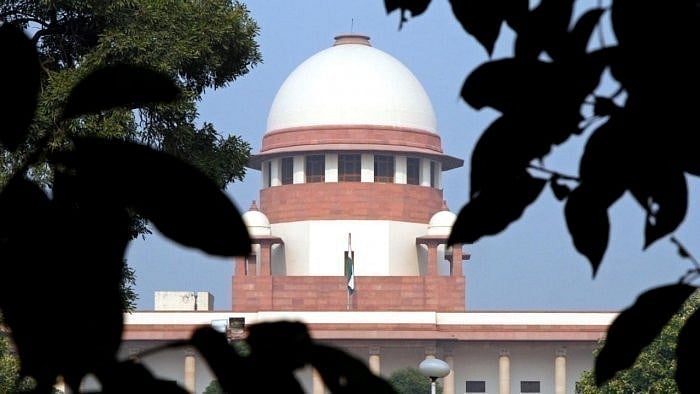
The Supreme Court of India.
Credit: PTI File Photo
New Delhi: The Supreme Court on Thursday said creating hundreds of fake user IDs to sell tickets without any authorisation from the railways would certainly be an offence under the Railways Act, 1989.
A bench of Justices Dipankar Datta and Prashant Kumar Mishra, however, said Section 143 of the Act, by being completely silent on creation of multiple user IDs, penalises the actions of only the unauthorised agents and "not unauthorised actions of the authorised agents".
Holding that penal provisions have to be read strictly and narrowly as a general rule, the court said, Section 143 does not criminalise creating multiple user IDs.
The court said the mere fact of the system of e-reservation and e-tickets being introduced after the enactment of the Act does not render the provision in Section 143 toothless to combat the illegal sale of e-tickets.
"The Indian Railways is a keystone of our country’s infrastructure. It carries around 673 crore passengers annually and has a tremendous impact on the economy of this country. Any effort to disrupt the integrity and stability of the ticketing system has to be stopped on its tracks," the bench said.
The court noted Section 143, importantly, makes no distinction between physical and online sale of tickets.
"The mischief that the provision seeks to remedy is that there should not be illegal and unauthorised procurement and sale of tickets, whatever be the mode – physical or online," the bench said.
The court pointed out there has been a major technological development in the last three decades and a significant number of services provided by the governments are available online.
"Electronic and internet services have not only become indispensable but offer significant advantages to the public. Having regard to the comprehensive phraseology employed in Section 143, the net of its coverage is wide enough to encompass regulation of the conduct of ticketing agents and to protect the public from unscrupulous elements trying to defraud them by sale of valueless ticket," the bench said.
The court agreed with the contention of Railway authorities that Section 143, a penal provision, has been enacted to tackle a social crime.
The bench was dealing with two connected appeals one filed by Inspector Railway Protection Force, Kottayam and another by J Ramesh.
Inspector RPF was aggrieved with the Kerala High Court's order which quashed proceedings against Mathews K Cherian and another person. They were accused of creating fraudulent user IDs with the Indian Railway Catering and Tourism Corporation web portal to procure and peddle railway tickets for profit, without being an agent authorised to procure and supply railway tickets and, therefore, operating an unauthorised business for procurement and supply of railway tickets.
In another case, the Madras High Court refused to quash criminal proceedings against appellant Ramesh for his alleged involvement in fraudulent activities such as supply of Tatkal etickets by creating multiple personal-user IDs and issuing unauthorised etickets procured through IRCTC website, contrary to IRCTC Rules.
Allowing appeal against Cherian and another person, the court noted the view taken by the Kerala High Court appears to be that Section 143 is somewhat outdated in the age of purchasing tickets using the internet. The HC has, in essence, read down Section 143 to state that one can conduct a business of procuring and supplying tickets without the authorisation of the railways as long as it is done through the internet.
Examining facts the matters, the court noted Mathew, without the authorisation of the railways, was carrying on a business of procurement and supply of railway tickets. The allegations against Mathew taken at face value fulfil the elements required under under Section 143(1)(a) of the Act; hence, the threshold for quashing has not been met in this case.
In case of Ramesh, the court noted he was an authorised agent of the railways carrying on the business of procurement and supply of railway tickets.
"Section 143 only deals with the actions of unauthorised persons and does not mandate a procedure to be followed by the authorised agents for procuring or supplying tickets to its customers. The nature of allegations against Ramesh in the connected appeal, though serious, Section 143 would not be attracted insofar as he is concerned," the court said.
Even if the facts disclosed in the first information report are taken at face value, commission of an offence cannot be attributed to Ramesh. Any breach has to be remedied by civil action and not criminal action, the bench added.
